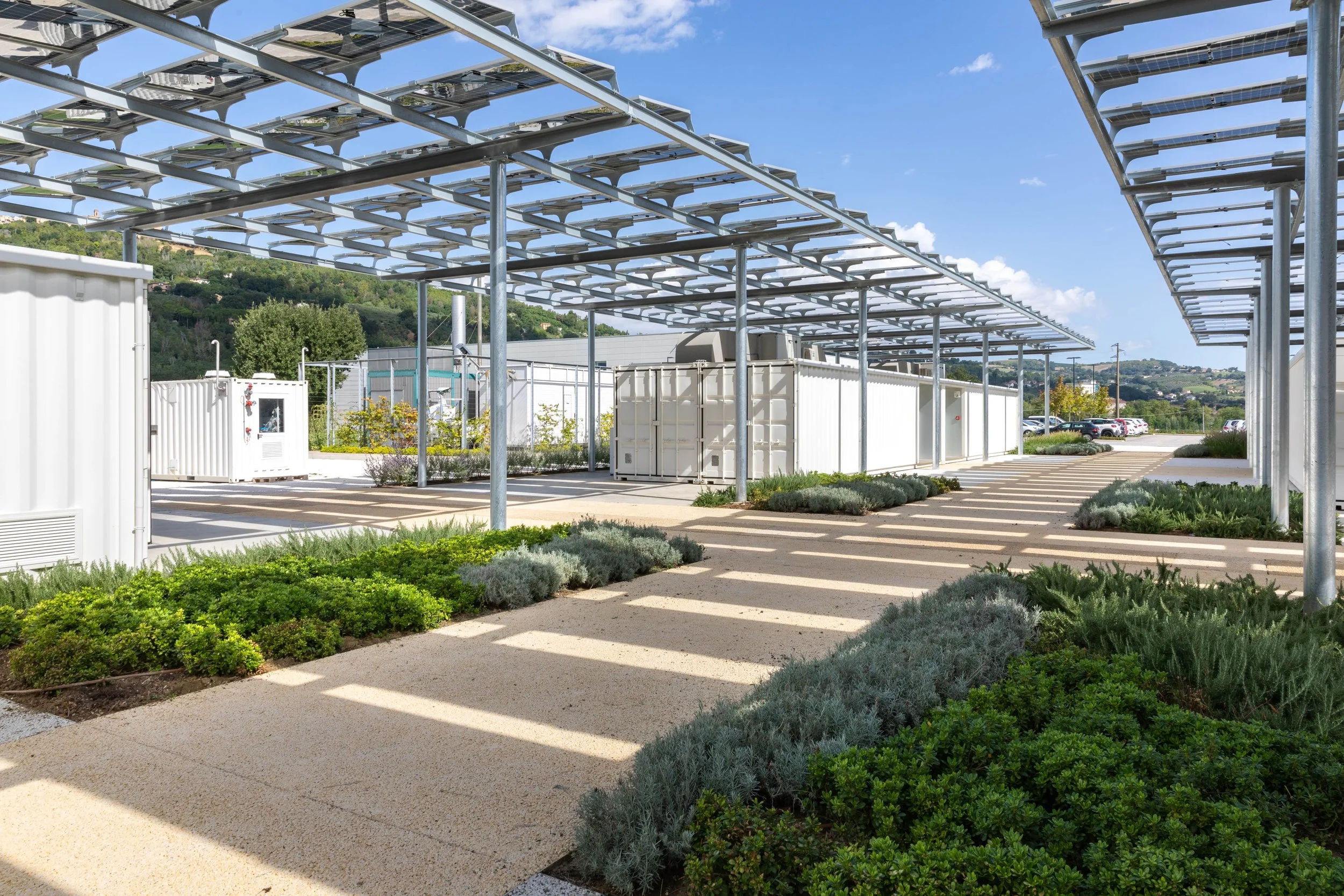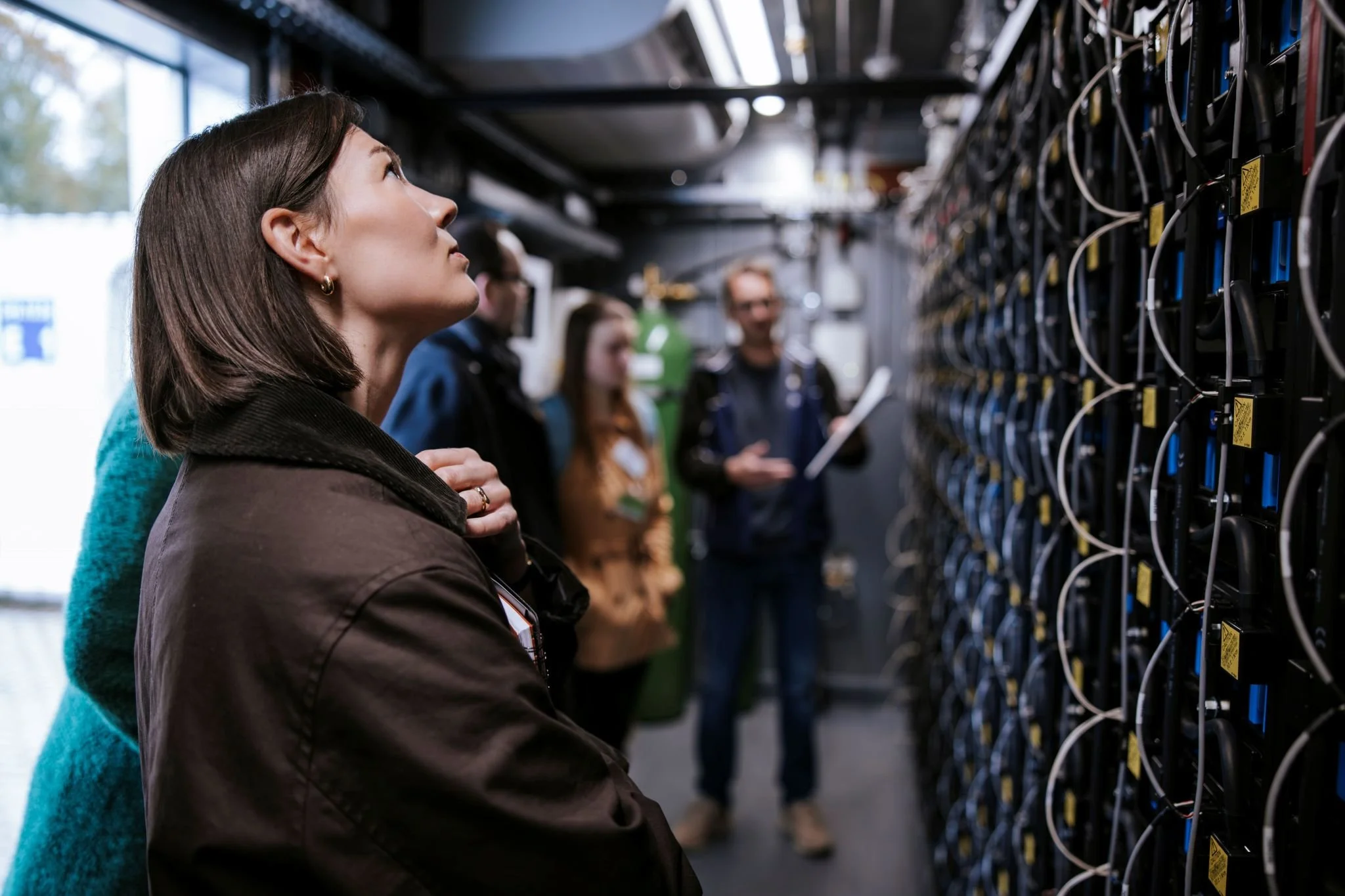Case studies
Loccioni V2G Technology
CLIENT
Loccioni
YEAR
2025
TASK
Showcase the role of Vehicle-to-Grid (V2G) technology in strengthening the resilience of national energy systems, within a major public discussion on renewable integration, storage, and grid stability.
PROJECT
Our NEX2 V2G charging system was featured in the “Blackout” episode of PresaDiretta on RAI 3, during an interview with Matteo Marchetti, Energy Project Manager at Loccioni. The segment explored how bidirectional charging enables electric vehicles to interact with the grid — feeding energy back when needed and helping balance renewable generation.
This project represents an important recognition of our collaboration with Loccioni and a tangible example of how technology can contribute to a smarter, more sustainable, and secure energy future.
Solar DC-DC System
CLIENT
Easy Power
YEAR
2023
TASK
Support the development of Greece’s first highway-based superfast charging infrastructure, designed to operate entirely on renewable energy. The goal was to create a robust, efficient, and scalable DC-DC system demonstrating how solar power and smart grid technology can redefine the future of electric mobility.
PROJECT
In partnership with EASY POWER S.A. and E2C, we delivered the world’s first DC-DC superfast charging system along a major Greek highway, powered directly by solar and battery storage through an advanced smart DC network.
The installation includes 4 × NEX2 SEED120-DC stations (120 kW each), supporting both CCS Combo 2 and CHAdeMO standards for full vehicle compatibility. By eliminating AC conversion, the system ensures maximum efficiency and minimal energy loss, while enabling real-time management of renewable generation and storage.Since its launch in 2022, the site at the Motorist Service Station of Malakasa has exceeded 28,500 charging sessions, proving its industrial-grade reliability and long-term performance.The project was internationally recognized, winning “Hybrid Energy Storage Project of the Year 2023” at the Energy Storage Awards, confirming its role as a global benchmark for sustainable highway charging.
CLIENT
Österreichische Post AG
YEAR
2023 – 2024
Austrian Post Fleet Charging
TASK
Support the electrification of Austria’s largest logistics and postal fleet, providing a reliable and scalable charging solution tailored for high operational efficiency. The goal: enable the Austrian Post to expand its e-mobility infrastructure with robust, user-friendly, and industrial-grade technology.
PROJECT
We supplied a bulk order of 70 SEEDBOX30 units — compact 30 kW DC wallboxes designed for fleet and depot applications. Each unit features a 7” display and dual DC energy meters, ensuring precise monitoring, easy operation, and compatibility with multiple vehicle types.
Deployment began in November 2023 and will be completed by December 2024, marking a key step toward the Austrian Post’s goal of achieving a fully electric logistics network.
V2G Research Platform
CLIENT
Forschungszentrum Jülich
YEAR
2024 - ongoing
TASK
Contribute to the development of an intelligent, sustainable, and bidirectional charging infrastructure within the Living Lab Energy Campus (LLEC) in Germany — a real-world laboratory exploring the energy transition beyond fossil fuels.
The initiative, part of the Intelligent Campus (TB-X) program, aims to integrate renewable generation, smart building control, and vehicle-to-grid (V2G) systems to demonstrate how research and technology can work together to create the energy systems of tomorrow.
PROJECT
As part of the Intelligent Campus initiative led by Forschungszentrum Jülich and NEW Niederrhein Energie und Wasser GmbH, we deployed our V2G technology to enable bidirectional charging across a new generation of smart charging points.
The system allows electric vehicles to store and return energy to the campus grid, supporting local renewable generation and providing flexibility in energy management. Integrated within a dynamic load management framework, it forms part of a broader ecosystem that includes solar PV, battery storage, low-temperature heat networks, and AI-based building control systems.
The LLEC serves as a living demonstration site for regional energy transformation in the Rheinisches Revier, addressing key challenges such as the replacement of coal-based energy, renewable intermittency, and the coupling of energy sectors.










